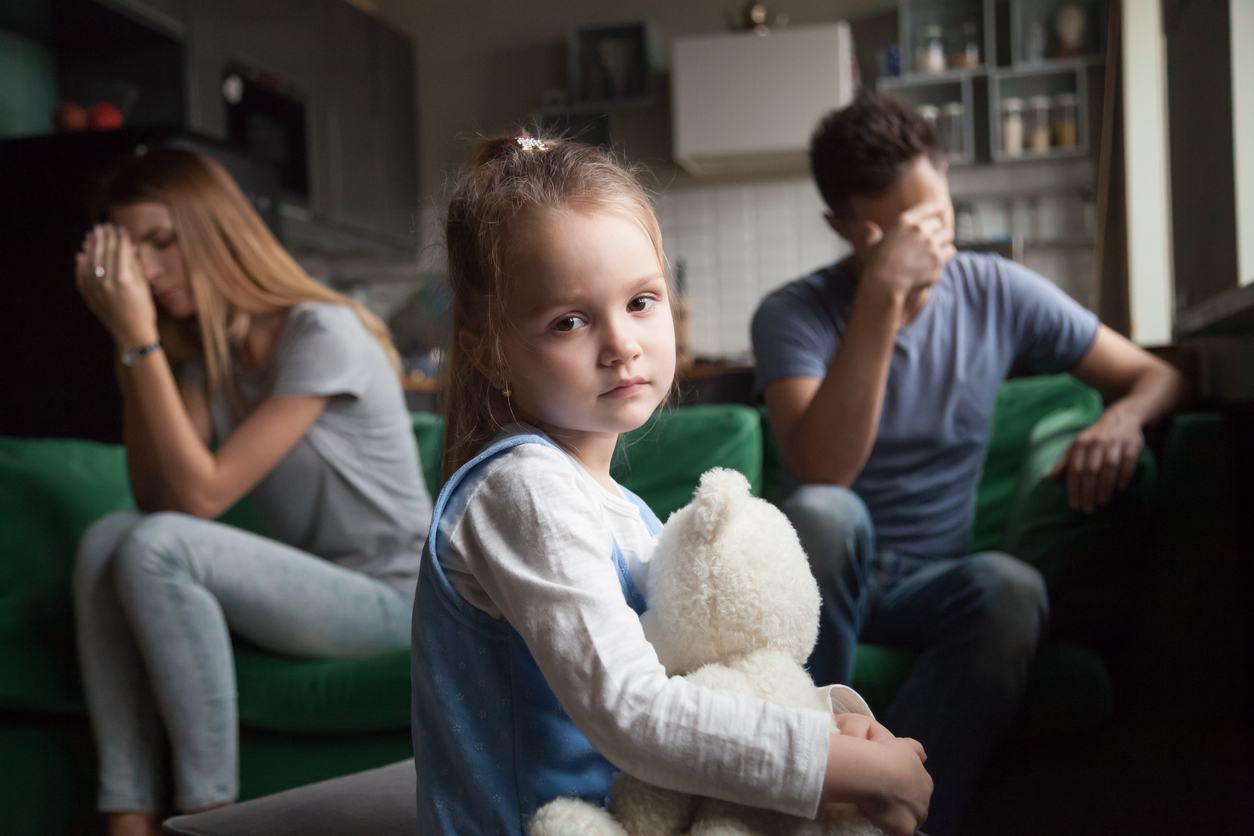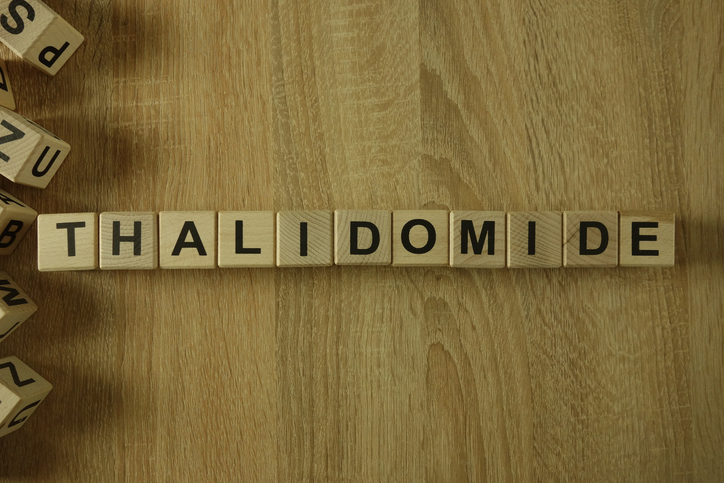2025-08-25
When a father’s anxiety leaves a mark
Pediatrics Psychiatry
By Ana Espino | Published on August 25, 2025 | 3 min read
#PaternalAnxiety #ChildMentalHealth #EmotionalDevelopment
Paternal anxiety is a psychological disorder characterized by persistent and excessive levels of anxiety, which can interfere with daily functioning, family relationships, and parenting. While scientific literature has long focused on maternal anxiety and its impact on child development, the role of paternal mental health remains far less explored. Yet, fathers play a crucial role in shaping a child’s emotional and behavioral development, and their psychological difficulties can directly or indirectly influence this trajectory.
Knowledge about paternal anxiety is still limited, partly due to the lack of longitudinal studies tracking its evolution and long-term impact, the variability of measurement tools complicating cross-study comparisons, and the underrepresentation of fathers in parenting research. Most family mental health interventions still primarily target mothers, leaving a gap in understanding the specific contribution of the father’s emotional state to child development. Understanding the extent to which paternal anxiety influences the onset of emotional or behavioral disorders—independently of maternal psychological status—is a key issue for refining prevention strategies and developing more inclusive and tailored interventions.
Against this backdrop, this study was conducted to assess the association between paternal anxiety and emotional and behavioral outcomes in offspring, from the prenatal stage through adolescence, and to identify the most vulnerable periods and risk factors.
Fourteen studies, encompassing 14,386 father–child dyads with follow-up from the prenatal stage to adolescence, were included. Paternal anxiety was measured using validated questionnaires and clinical interviews. Child outcomes covered emotional symptoms (anxiety, depression), behavioral problems (aggression, hyperactivity), and relational difficulties.
Statistical analyses revealed that paternal anxiety was significantly associated with an increase in emotional symptoms (standardized effect size g = 0.14) and behavioral problems (g = 0.13) in children. These effects were stronger when anxiety was assessed during early childhood. Results remained significant after adjusting for maternal anxiety, suggesting an independent effect.
Paternal anxiety is linked to a higher risk of emotional and behavioral disorders in children, independently of maternal psychological status. Recognizing and addressing this link is essential to acknowledge fathers as key actors in prevention and intervention strategies in family mental health. This systematic review and meta-analysis aimed to assess the impact of paternal anxiety on children’s emotional and behavioral development, while also identifying methodological gaps that hinder the establishment of robust clinical recommendations.
Findings confirm that paternal anxiety exerts an independent effect, increasing the risk of emotional and behavioral difficulties, with a particularly marked impact when anxiety occurs during early childhood.
Further studies exploring underlying family and biological mechanisms, as well as early interventions specifically targeting paternal anxiety reduction, are needed to support optimal child development and guide more inclusive prevention strategies.
About the author – Ana Espino
As a scientific writer, Ana is passionate about bridging the gap between research and real-world impact. With expertise in immunology, virology, oncology, and clinical studies, she makes complex science clear and accessible. Her mission: to accelerate knowledge sharing and empower evidence-based decisions through impactful communication.
#PaternalAnxiety #ChildMentalHealth #EmotionalDevelopment
Paternal anxiety is a psychological disorder characterized by persistent and excessive levels of anxiety, which can interfere with daily functioning, family relationships, and parenting. While scientific literature has long focused on maternal anxiety and its impact on child development, the role of paternal mental health remains far less explored. Yet, fathers play a crucial role in shaping a child’s emotional and behavioral development, and their psychological difficulties can directly or indirectly influence this trajectory.
Knowledge about paternal anxiety is still limited, partly due to the lack of longitudinal studies tracking its evolution and long-term impact, the variability of measurement tools complicating cross-study comparisons, and the underrepresentation of fathers in parenting research. Most family mental health interventions still primarily target mothers, leaving a gap in understanding the specific contribution of the father’s emotional state to child development. Understanding the extent to which paternal anxiety influences the onset of emotional or behavioral disorders—independently of maternal psychological status—is a key issue for refining prevention strategies and developing more inclusive and tailored interventions.
Against this backdrop, this study was conducted to assess the association between paternal anxiety and emotional and behavioral outcomes in offspring, from the prenatal stage through adolescence, and to identify the most vulnerable periods and risk factors.
Could paternal stress shape childhood?
Fourteen studies, encompassing 14,386 father–child dyads with follow-up from the prenatal stage to adolescence, were included. Paternal anxiety was measured using validated questionnaires and clinical interviews. Child outcomes covered emotional symptoms (anxiety, depression), behavioral problems (aggression, hyperactivity), and relational difficulties.
Statistical analyses revealed that paternal anxiety was significantly associated with an increase in emotional symptoms (standardized effect size g = 0.14) and behavioral problems (g = 0.13) in children. These effects were stronger when anxiety was assessed during early childhood. Results remained significant after adjusting for maternal anxiety, suggesting an independent effect.
Including fathers to protect children
Paternal anxiety is linked to a higher risk of emotional and behavioral disorders in children, independently of maternal psychological status. Recognizing and addressing this link is essential to acknowledge fathers as key actors in prevention and intervention strategies in family mental health. This systematic review and meta-analysis aimed to assess the impact of paternal anxiety on children’s emotional and behavioral development, while also identifying methodological gaps that hinder the establishment of robust clinical recommendations.
Findings confirm that paternal anxiety exerts an independent effect, increasing the risk of emotional and behavioral difficulties, with a particularly marked impact when anxiety occurs during early childhood.
Further studies exploring underlying family and biological mechanisms, as well as early interventions specifically targeting paternal anxiety reduction, are needed to support optimal child development and guide more inclusive prevention strategies.
Read next: Impact of parental mental illness on the child
About the author – Ana Espino
PhD in Immunology, specialized in Virology

Last press reviews
Leprosy: a disease still beyond control

By Ana Espino | Published on January 22, 2026 | 3 min read...
Parental alcohol intoxication: the hidden impact on children’s mental health

By Carolina Lima | Published on January 19, 2026 | 3 min read
